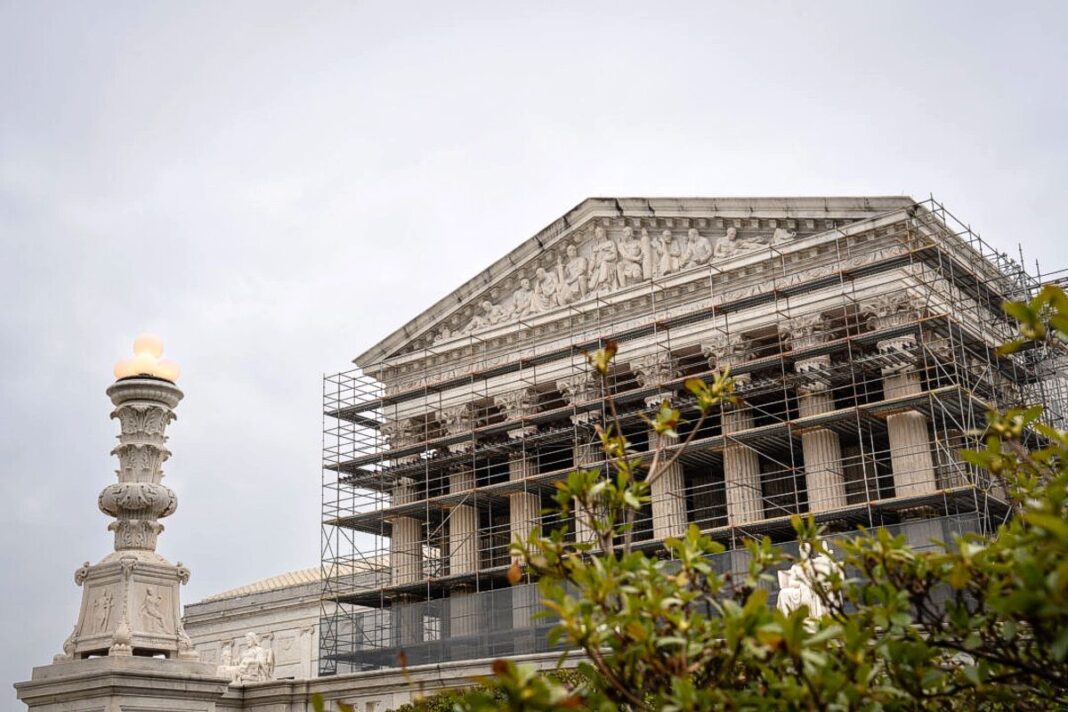Justice Brett Kavanaugh put a federal appeals court ruling on hold that blocks voting discrimination lawsuits in seven states.
The Supreme Court issued an emergency order on July 16 temporarily blocking a lower court ruling that prevents voters in seven states from suing over alleged discrimination under the federal Voting Rights Act.
The lower court is the U.S. Court of Appeals for the Eighth Circuit, which covers Arkansas, Iowa, Minnesota, Missouri, Nebraska, North Dakota, and South Dakota.
Justice Brett Kavanaugh issued the new order in Turtle Mountain Band of Chippewa Indians v. Howe. Kavanaugh did not explain his decision. The order, known as an administrative stay, gives the nine justices more time to consider to case.
The applicants who sought the order are the Turtle Mountain Band of Chippewa Indians, the Spirit Lake Tribe, and three Native American voters. The respondent is Michael Howe, North Dakota’s secretary of state.
The Indian tribes had argued that an electoral map the North Dakota Legislature approved in 2021 was racially discriminatory. A federal district court agreed in January 2024 and adopted a map proposed by the tribes that was used in elections that year.
In May, the U.S. Court of Appeals for the Eighth Circuit ruled the tribes had no right to sue under the Voting Rights Act and ordered the 2021 map reinstated.
The Supreme Court’s new ruling leaves the 2024 map in place for now.
The case goes back to 2021 when the applicants sued the secretary of state under Section 2 of the Voting Rights Act. Section 2 prohibits voting practices or procedures that discriminate on the basis of race, color, or membership in a large language minority group.
The Supreme Court interpreted Section 2 in Thornburg v. Gingles (1986). The court found the section forbids laws, practices, and structures that interact “with social and historical conditions to cause an inequality in the opportunities enjoyed by black and white voters to elect their preferred representatives.”
The high court upheld Section 2 in June 2023 when it was challenged in an Alabama redistricting case known as Allen v. Milligan. The court voted 5-4 to strike down Alabama’s electoral map.
The applicants argued in their lawsuit that the state’s 2021 redistricting of seats in the state Legislature discriminated against Native Americans. They said the state placed electoral district boundary lines in a way that illegally diluted, or weakened, the voting strength of Native Americans.
Vote dilution happens when members of “a politically cohesive minority group” are concentrated in a single district or divided among several districts so they are outnumbered by a majority group in each district.








